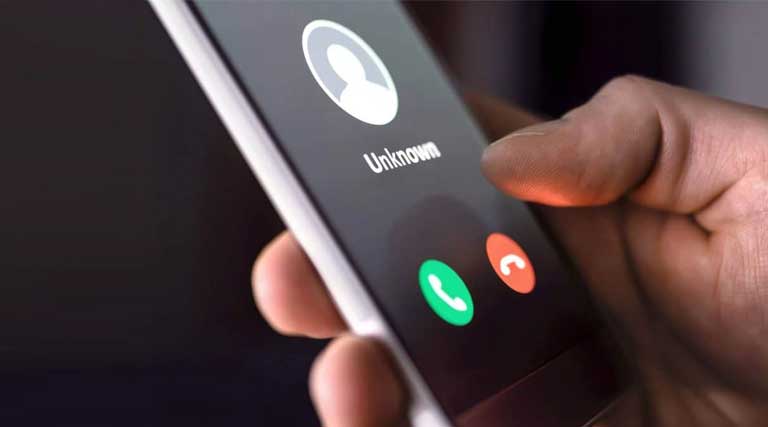Chattanooga, TN – EPB Utility has received many reports from concerned customers that they are receiving automated calls claiming to be EPB and threatening to disconnect their services.
The person or group who is initiating the robocalls claims on the call that the customer has a past due bill, that there is an EPB truck in the neighborhood and that their services will be disconnected shortly if they do not contact them immediately on a 1-800 number.
EPB states that there are several red flags customers can look for in situations like this.
EPB never uses a 1 (800) number.
EPB says they will never call customers and leave a message demanding payment.
They state that if there is a problem with a customer’s bill, the customer service department will contact the customer directly.
If necessary, EPB customer service will leave a message for the customer to return their call at 423-648-1372.
EPB states that if a customer has a question about their EPB account, always call customer service at 423-648-1372 to verify the information.
EPB states that customer service is available 24/7/365 and customers can also live chat with an agent at epb.com.
In addition to robocall scams, there is a heightened level of online scams currently due to more online shopping and generally, more time being spent online since the onset of the Coronavirus.
EPB Director of Information Security, Steve Morrison has issued a Top 10 list of Personal Cybersecurity Tips.
“In these unprecedented times, computer hacking has increased dramatically. Some sources cite up to a 330% increase since COVID-19,” said Morrison.
1) Make sure your device, apps, browser, and anti-virus/anti-malware software are turned on and up to date.
2) Protect your passwords. Use complex passwords with special characters, etc. and use multi-factor authentication whenever possible.
3) Be wary of phishing scams. Don’t click any links until you…
• Check the sender – Does the name and email address align with the company the sender claims to represent?
• Before clicking any links, hover over them to show the web address. Does the web address match up with the company the sender claims to represent? Never click any links if you’re suspicious.
• Take a deep breath – Hackers will try to make you panic. They will say you must do something immediately like pay, login, or provide information. Always take some time to think it through.
• Call the sender – If anything seems suspicious, look up the company’s phone number on an official source and call them.
• Use common sense — If it doesn’t make sense for you to be receiving an email from a certain company or about a certain topic, that’s a red flag for scams – particularly if they ask you to pay money or provide information.
• One way to prevent spam email is by moving them to your junk folder. That will flag them as spam and email servers will begin to block emails from that address.
4) Protect your private personal information. There are plenty of cyber-crime tricks that get people to reveal personal info that can be used in later attacks. For example, a scammer claiming to be a customer support rep from a company calls and tries to verify your credentials so that they can resolve an issue. Never give personal info unless you know you are corresponding with a legitimate company representative.
5) Avoid unsecured WiFi networks. Whether you use a company or personal laptop or a mobile device, avoid connecting to unsecured WiFi hot spots in public places like stores, restaurants, bars and hotels. These unsecured networks can attract hackers who steal passwords, personal data, email and unencrypted instant messages. When in doubt about a public network’s security, use your mobile provider’s cellular network or consider using a high quality virtual private network (VPN).
6) Beware of seasonal scams. Fake package tracking emails, fake e-cards, fake charity donation scams, and emails requesting that you confirm purchase information are particularly common this time of year. Use known, trusted URLs instead of clicking on links.
7) Back up your data. Hackers use “ransomware” to block access to your data or computer until you pay a “ransom” to get your files unlocked. The best solution is to regularly back up your data, so that if you must wipe all drives to restore your computer, your files are safe. There are many great backup solutions for personal devices on the market today. You can choose between a removable drive or a cloud backup service such as Apple’s iCloud or Google Drive. Choose a brand you trust and start using one soon.
8) Check your credit card and bank statements regularly. These are often the first indicators that your account information or identity has been stolen. If there is a discrepancy, report it immediately.
9) Check your credit report at least annually. The Federal Trade Commission provides information about getting free credit reports and what to do if you find discrepancies.
10) Watch what you’re sharing on social networks. Criminals and those with ill intentions can use information in your posts as a way to start collecting a shocking amount of information about where you live, work, go to school, your children and family, where you shop and other daily routines.






